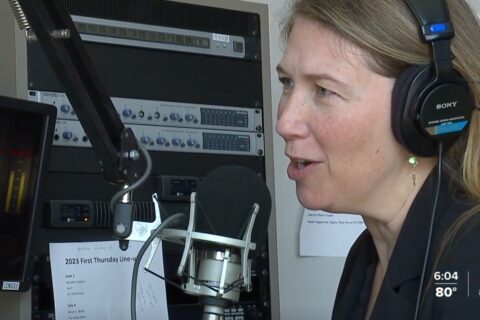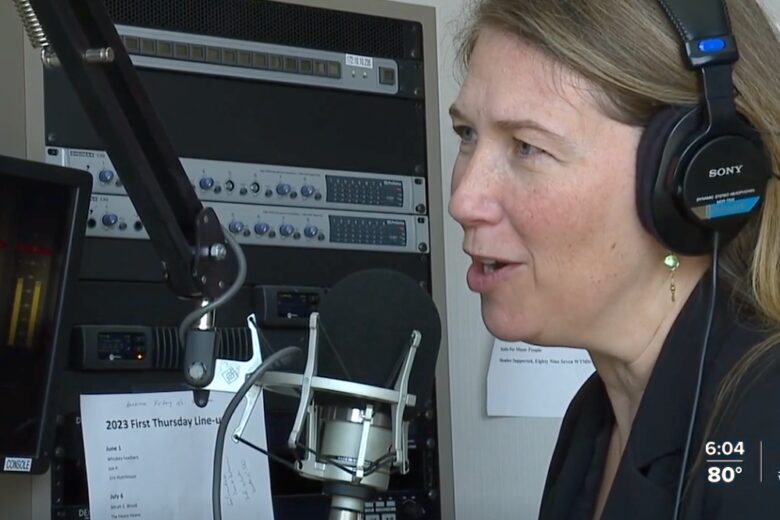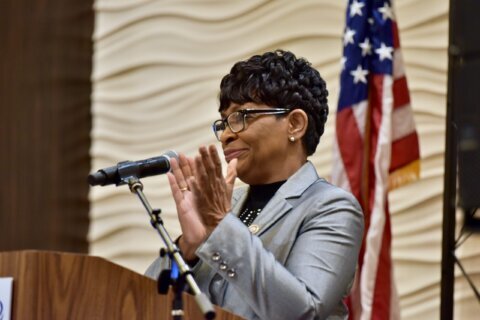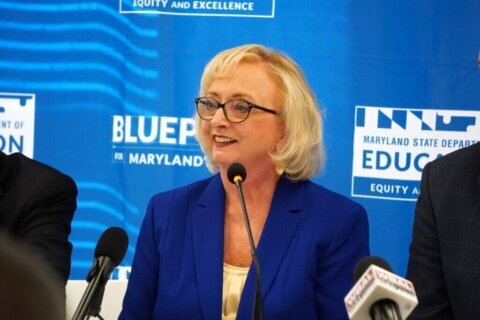
TOWSON, Maryland (WMAR) — When you tune in to WTMD radio on your late afternoon drive home, you hear the voice of Carrie Evans.
What if you discovered – that voice was actually coming from a robot?
That’s not happening at this station in Towson. Evans is very much a living, breathing person.
But artificial intelligence has made its way to the airwaves already. A station in Portland, Oregon debuted its first AI DJ earlier this summer..
In the video above, take a listen to “AI Ashley” having a live conversation with a listener who won Taylor Swift tickets.
When Evans first heard it, she says her jaw dropped. She says AI Ashley has been the talk of the town in the radio industry.
One of Evans’ biggest critiques – she doesn’t want to trick the audience.
“I’ve seen some that they’ve actually programmed to make mistakes, to stutter or trip on a word from time to time, so that they’re more humanistic,” Evans said.
People we talked to in the business say, when you take the human away from the microphone, not only is the host losing their job, but the listeners are losing something too.
“It can’t tell you about the fly ball that it caught at Camden Yards over the weekend. It can’t tell you what the temperature was like at Otto Bar for the show on Saturday night,” Evans said.
“There’s an expectation, that the individual that is coming to you out of that speaker, in your car, in that very intimate environment, is someone you know,” said Craig Swaggler, the president and general manager of WTMD and WYPR.
He’s not considering replacing any of his real hosts with artificial ones. But he says ultimately, it will be up to the listeners whether this is something that continues in the radio business.
“The audience is the voting democracy in many ways. So if they accept it, there could be more of an escalation of it, we’ll have to see how that turns out,” Swaggler said.
Please note: This content carries a strict local market embargo. If you share the same market as the contributor of this article, you may not use it on any platform.








